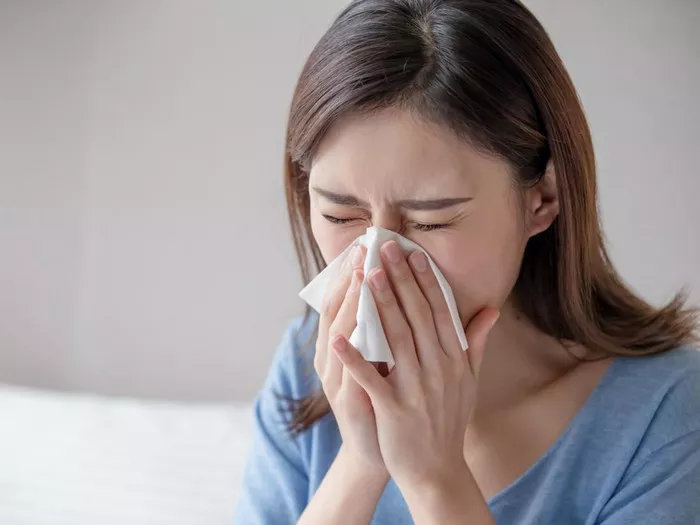Benzoyl peroxide is a commonly used ingredient in acne treatments. While benzoyl peroxide is generally considered safe and effective, some individuals may experience an allergic reaction to the medication. In this article, we will discuss how long an allergic reaction to benzoyl peroxide can last and how to treat it.
Identifying the Symptoms of an Allergic Reaction to Benzoyl Peroxide
The first step in understanding how long an allergic reaction to benzoyl peroxide can last is to identify the symptoms. Allergic reactions to benzoyl peroxide can cause a variety of symptoms, including redness, itching, swelling, and rash. In severe cases, an allergic reaction can cause blistering and peeling of the skin. If you experience any of these symptoms after using a product containing benzoyl peroxide, it is important to stop using the product immediately and seek medical attention if necessary.
How Long Does an Allergic Reaction to Benzoyl Peroxide Last?
The duration of an allergic reaction to benzoyl peroxide can vary depending on the severity of the reaction. Mild reactions may last for a few hours to a few days, while more severe reactions can last for several weeks. In some cases, the reaction may persist for several months. It is important to note that the duration of the reaction can also be influenced by factors such as the individual’s immune system and the amount of benzoyl peroxide exposure.
Treating an Allergic Reaction to Benzoyl Peroxide
The first step in treating an allergic reaction to benzoyl peroxide is to stop using the product that is causing the reaction. This may seem obvious, but many people continue to use the product, hoping that the reaction will go away on its own. However, continuing to use the product can make the reaction worse and may even lead to a more severe allergic reaction.
Once you have stopped using the product, you can take steps to soothe and heal your skin. Here are some tips to help treat an allergic reaction to benzoyl peroxide:
Wash your skin: Use a gentle, fragrance-free cleanser to wash your skin and remove any remaining benzoyl peroxide. Be sure to rinse your skin thoroughly to remove all traces of the product.
Apply a cold compress: Applying a cold compress to the affected area can help to reduce inflammation and provide relief. You can use a cold, damp washcloth or a bag of frozen vegetables wrapped in a towel. Apply the compress to the affected area for 10-15 minutes at a time, several times a day.
Use over-the-counter medications: Over-the-counter medications can also be used to treat mild allergic reactions to benzoyl peroxide. Antihistamines, such as Benadryl, can help to reduce itching and swelling. Topical corticosteroids, such as hydrocortisone cream, can also be used to reduce inflammation and itching. However, it is important to use these medications as directed and to consult with a healthcare professional if you have any questions or concerns.
Moisturize your skin: Moisturizing your skin can help to soothe and hydrate it, which can promote healing. Look for a fragrance-free moisturizer that is designed for sensitive skin.
Preventing Allergic Reactions to Benzoyl Peroxide
The best way to prevent an allergic reaction to benzoyl peroxide is to avoid products that contain the ingredient. Here are some tips to help prevent allergic reactions to benzoyl peroxide:
Read the labels: Always read the labels on acne products before using them. Look for products that are free of benzoyl peroxide or other harsh chemicals.
Patch test: Before using a new acne product, perform a patch test. Apply a small amount of the product to a small area of skin, such as the inside of your elbow, and wait 24 hours to see if you have a reaction.
Use alternative acne treatments: There are many alternative acne treatments available that do not contain benzoyl peroxide. Talk to your healthcare provider or a dermatologist to find a treatment that is right for you.
Consult with a Healthcare Professional
If you have a history of allergic reactions to benzoyl peroxide or other acne treatments, it may be a good idea to consult with a healthcare professional. Your healthcare provider can help you identify the specific ingredients that are causing your allergic reactions and recommend alternative treatments that are less likely to cause a reaction. They can also prescribe medications to help manage your symptoms and provide guidance on how to care for your skin.
Conclusion
Allergic reactions to benzoyl peroxide can be uncomfortable and even painful. However, with the right treatment and prevention strategies, they can be managed effectively. If you suspect that you are having an allergic reaction to benzoyl peroxide, stop using the product immediately and seek medical attention if necessary. By taking steps to prevent allergic reactions to benzoyl peroxide, you can keep your skin healthy and beautiful without compromising your health and well-being.
[inline_related_posts title=”You Might Be Interested In” title_align=”left” style=”list” number=”6″ align=”none” ids=”4479,4476,4440″ by=”categories” orderby=”rand” order=”DESC” hide_thumb=”no” thumb_right=”no” views=”no” date=”yes” grid_columns=”2″ post_type=”” tax=””]

































